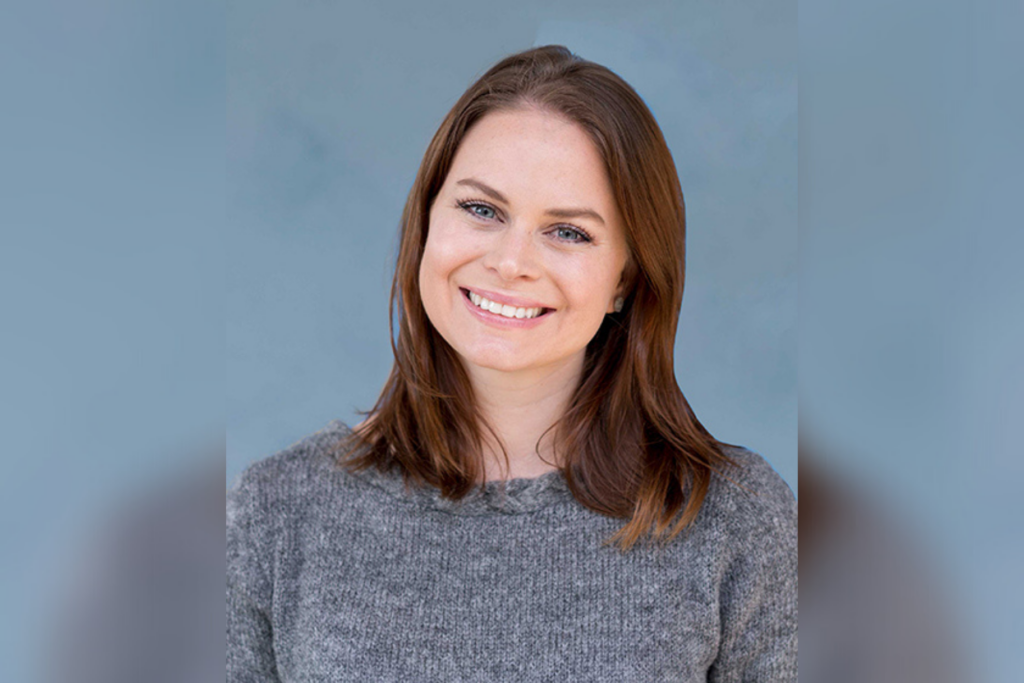For online Master of Science in Digital Media Management (MSDMM) student Christina Schucker, automotive marketing and advertising has been an evolving, long-held passion.
Schucker — who has worked with major vehicle manufactures including Ford, GMC and Buick — is the senior media analyst at Garage Team Mazda, a full-service agency created exclusively to support the car company.
“I get an opportunity to test, monitor, report on pretty much every piece of media that we’re running. We get to see from the beginning things like setting up campaigns, monitoring campaigns [and] doing A/B testing along the way to make sure that we’re really hitting the right audience,” she explained.
While Schucker has been loving her role at Mazda for the past five years and has no plans to leave, she does have aspirations to expand her expertise into an adjacent niche: audience strategy. To get there, Schucker knew she needed to fill the gap in her education experience, which led her to pursue the online MSDMM degree at the USC Annenberg School for Communication and Journalism.
And since joining the program, Schucker has already tackled two courses that directly address digital audience strategy, analysis and research.
“I want to become a better manager, a more effective manager. I want to understand the digital space in terms of how that translates to creating strategy and running a department and long-term planning for what that would look like,” she said. “Truly I couldn’t even believe that this program was real because it was so perfectly tailored to everything I was looking for at the time.”
Although Schucker previously considered obtaining an MBA, it wasn’t until a LinkedIn search led her to the MSDMM program that she began to consider a more digital media-driven degree. At first, Schucker was hesitant to enroll in a master’s program that focused on the digital space, as she was concerned it would not be “up-to-date” due to the ever-changing nature of the industry.
An overview of the curriculum, however, quickly assuaged any fears she had about the MSDMM program being behind the curve.
“When I read through this program, I was like, ‘This is everything I wanted,’” Schucker recalled. “Every single week, everything that we do has been so relevant to what I’m currently doing in my position.”
The MSDMM degree provides students with a thorough examination of the intersection between digital media practices, consumer culture and society, allowing them to cultivate a solid foundation for their roles as leaders. Another key focus of the program? Supplying graduates with strategies for effectively communicating complex ideas to a variety of audiences and stakeholders, which is a crucial skillset to develop as an audience strategy director.
“The program is perfect because there is literally a class on what audience strategy is and how that translates into a real-world position, how the marketing technology stack even works, what programs you need to know, what companies live in that space that you need to be aware of. Without this program, I wouldn’t feel as confident wanting to step into that [audience strategy director] role because I wouldn’t think that I have as much relevant experience, but I feel fully confident,” she said.
In the midst of her second semester, Schucker is looking forward to bringing an informed data and analytics perspective to her current position, deepening her understanding of performance metrics. She is also hoping to learn how to leverage different qualitative and quantitative research from multiple departments in order to better target and reach customers using various publishers and partners.
These goals come at a pivotal time for the digital advertising and marketing industry, whose consumer data collection methods are facing greater scrutiny under the California Consumer Privacy Act (CCPA).
“The biggest thing on the horizon for my industry — and probably most people’s industries — is the privacy concerns and CCPA, and the getting rid of third-party pixels and what that means from a very targeted … audience strategy,” Schucker explained.
While the CCPA affords consumers greater control over their personal information and how it is being used by companies, that also means businesses have less precise ways of reaching their intended audiences. Opportunities for retargeting and providing sequential messaging to customers have significantly dropped, and agencies have been forced to pivot and develop broader strategies to reach people, according to Schucker.
At the same time, machine learning, advanced scripts and growing technology have helped audience targeting become smarter and more iterative, opening up new ways to provide consumers with relevant advertisements.
“The future of machine learning is definitely going to change the landscape and way we’re able to do advertising in the future,” she said.
Coming from an undergraduate background in film and literature, Schucker has plenty of experience in the art of writing, storytelling and media. Now, with her MSDMM degree learnings in audience strategy — coupled with a decade of on-the-job experience — she is excited to combine the two skillsets and charter a new career path.
“Advertising and storytelling are very emotional things … whereas analytics is very math, very black-and-white. Either things are working or they’re not. One of the things I’ve learned in this program is that there are opportunities out there, there are jobs that you can work in where you’re really marrying that emotional side of the business, but also making sure it’s backed up with data so that those things can live in harmony,” she concluded.
Learn more about the online MS in Digital Media Management program today.


